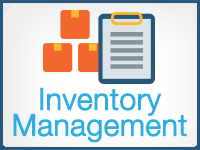12 Money Management Ideas for Business Growth
 12 Money Management Ideas for Business Growth
12 Money Management Ideas for Business Growth
It’s so pathetic that many people go into business but only a few know how to make their business grow by managing their money well. The good news is, there are many ways you can give your business a positive financial overhaul and improve your financial success. The following tips and ideas represent practical small business money management tips you can adopt right now.
- Negotiate with Your Vendors
Sometimes, you have to work to get a good bargain. When you make purchases from specific vendors or contract suppliers, don’t sign the contract right away. See if they’re open to negotiating a lower price. Also, remember to take a good look at the purchase terms like grace periods and penalties for paying late. In some circumstances, getting an extra 30 days to pay is better than a 5% discount upfront.
- Don’t Mix Your Personal and Business Finances
There are dozens of reasons why you want to keep your business and personal accounts separate like personal liability, tax issues, and mixed up accounting records. If things get tight with your business finances, don’t use your funding to secure your business finances. Doing this can lead to a mess you’ll pay for later. The easiest way to keep these two separated is to practice what is called book keeping in your business. Start by recording every single transaction that occurs in your business – whether outward or inward transactions.
- Don’t Make Late Payments
Just like your personal finances, you want to pay all of your business bills on or before the due date. Loan payment and credit card fees can add up very fast, but so does pay constant late fees on vendor bills. The same line of thinking goes for your taxes, but taxes have much more severe monetary penalties. Set up monthly reminders for all of your bills to ensure nothing slips through the cracks. You’ll have a skinny profit-loss margin when you first start. Avoiding multiple late fees could mean the difference between ending the year in the black or red.
- Take Money Management courses.
Being a small business owner doesn’t mean you shouldn’t take money management courses. Take an Introduction to Accounting course either in-person at your local community college or online. Learn how cash flows in and out of your business.
The more you know and learn about small business money management, the better you’ll prepare yourself to make smart money decisions. No matter how large or small your financial challenges are, nothing can replace being hands-on and proactive.
 12 Money Management Ideas for Business Growth
12 Money Management Ideas for Business Growth
- Monitor Your Spending
Do you know how much you spend on your business every day? How about every week or month? If you don’t carefully monitor your spending, you could end up with bills you don’t need or can’t afford. Overspending would send lead your business down the drain.
It’s common for business owners to have several business-related accounts like a credit card account, savings account, and checking account. Monitor all of them to see how much you withdraw from each one. This monitoring will help you to keep on top of your account balances.
- Time Every Purchase
Resist the urge to make unnecessary purchases until you pay all of your bills for the month. Also, wait until you have enough cash in your accounts to cover any new expenses that may come up.
Timing your purchases can decrease your business’s tax liability, as well! Before the end of the year, it’s a good idea to consider stocking up on tax-deductible items like business supplies. You can claim these on your tax return and reduce the amount you owe.
- Create and Stick to a Budget
Sit down and put in some time creating a budget, and plan to keep up with it. This can significantly simplify the way you manage your business’s finances. A budget will help you set clear revenue and expense goals.
The budget will outline the expenses you incur while operating your business. When you know exactly how much you can spend, it’s easier to manage your spending habits. A budget can also forecast your future business revenue. If you see that your revenue forecast is lower than you budgeted for, start looking for ways to cut expenses and increase your income.
Read Also: How to Find and Attract Your Customers Online
- Manage Your Inventory
Do you have a habit of ordering too much inventory that sits and collects dust in your stock room? Or, are you on the other end of the spectrum, and you’re always running out of in-demand products that cause you to turn away customers? Improving how you manage your inventory can help you balance your small business’s finances.
Start tracking how much inventory you have and avoid going over the fine line between not having enough and having too much. Record your inventory sales and purchases in your software and take time to monitor how much you have in stock before you order more.
 12 Money Management Ideas for Business Growth
12 Money Management Ideas for Business Growth
- Cut Your Costs and Increase Your Revenue
These two small business money management tips are relatively straightforward, but people struggle with increasing their income while decreasing their expenses. If you’re having trouble finding the balance every day, make it a point to find ways to cut your costs and increase your revenue.
Do you know how to control business expenses? To cut your costs, find and take a hard look at your expenses. When you get an idea of your spending areas and how much you spend, you can start cutting out frills. Shopping for new vendors can also cut costs. You can work on increasing your business’s revenue by promoting your products through email marketing, offering discounts, adding new products, or setting up a referral or loyalty program to gain and keep your customers.
- Set Aside a Cash Reserve
Putting small business money management tips into everyday practice can dramatically improve your cash flow management processes, having a cash reserve is a good idea. The unexpected can happen, and you don’t want to scramble for funds to cover an emergency.
To start your cash reserve, open a business savings account. Make a point to regularly deposit money into the account, and don’t dip into it unless you have no other choice. This will help you in a pinch, and it can give you peace of mind.
- Set SMART Goals
Ambition and enthusiasm are important characteristics of business owners and managers. But so is the ability to make rational financial decisions based on the facts.
One of the reasons why so many businesses fail to thrive in the fact that their owners give in to the enthusiasm but fail to create a proper short-term and long-term goal that is realistic and achievable. The short-term goals for every small business owner should be SMART:
- Specific
- Measurable
- Achievable
- Results-based and
- Time-limited.
This means using the budgeting data we have mentioned earlier to set financial goals specific to the business and its needs. Once a goal is in place, you as a business owner would be able to easily identify wasteful spending and see various ways to trim your costs while increasing your profit margins.
- Create and Review Your Financial Reports Regularly
It’s important to keep a close eye on your business expenditure. Online accounting software will automatically quickly draw up useful reports, such as:
Profit and loss report: This report will show your company’s income, expenses, and profits and losses over time.
The balance sheet reports These show assets, liabilities, and net equities.
Receivables and Payable Report: These show how much money is owed by and to, your company.
These reports give an insight into the financial health of a business empowering business owners to create effective buying, selling and collection strategy.
In conclusion, the business might be about creating great products and services. But if you can’t pay your bills, you could be out of business.
Failing to understand your numbers is the number one reason for a business to go bankrupt. So it’s important that you manage your money wisely, and build a healthy business that benefits your customers, employees, and more importantly YOU.
Hope you enjoy this article?
Share your thoughts in the comment session.
Contact us today for your business consultancy and business advisory services. We can help you fine tune your idea, structure your business, market your business, train your staff, consult on your retirement plan, coach you for financial success. We also write business plan and help with fund raising strategies and Grant applications. We can help you start, grow and expand your business.
Call or WhatsApp us now on 081 0563 6015, 080 7635 9735, 08113205312 or send email to dayohub@gmail.com and we will solve any of your business problem.
Related